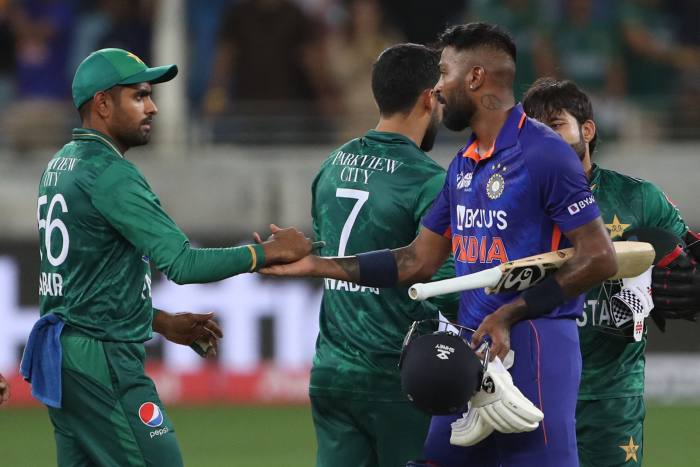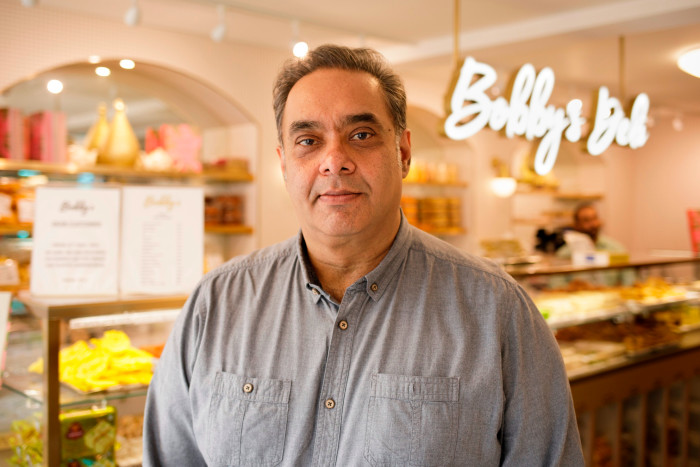It was a night that Leicester will not forget. Although tensions between sections of the Muslim and Hindu communities had been building since May, the scale of disturbances caught local authorities off guard, sending shockwaves all the way to India.
Violence, in which 16 police officers were injured while holding the line between rival groups of young men, has served a warning of how extremist agendas are blowing in from elsewhere, threatening a relatively harmonious tradition of multicultural coexistence.
The extent to which communal violence in the East Midlands city was linked to online religious abuse emanating from South Asia was not immediately clear. But MPs and commentators have been warning of the polarising effect of Hindu nationalism reaching Britain’s streets and this was the first large-scale unrest in which it had featured.
The clashes on September 17 are also a reminder of how stripped-back youth services in inner cities have left local authorities without the intelligence or trust among younger people to pre-empt this kind of trouble.
“It’s a firebomb that has exploded,” said Ayoub Zamadka, a social worker at the Highfields community centre in south Leicester appealing to the city council to take the lead in addressing tensions before they spread. “It can’t be swept under the carpet,” he said.
While the disturbances only involved a small portion of the younger population, they have reverberated widely, drawing in agitators from outside Leicester, prompting further clashes at a Hindu temple in Birmingham and attracting media coverage as far as South Asia.

India’s High Commission in London strongly condemned “the violence perpetrated against the Indian community . . . and vandalisation of premises and symbols of Hindu religion”.
It said it was seeking “immediate action against those involved in these attacks” from UK authorities. Pakistan’s High Commission, meanwhile, condemned what it called “a systematic campaign of violence and intimidation that has been unleashed against the Muslims of the area”.
Older members of both faith communities admit to having been blindsided by events, and attribute the flare-up to a mix of outside influence, misunderstanding, deliberate provocation and young blood.
“We can turn around and apportion blame but the reality is there are extremist ideologies floating around in all communities,” said Dharmesh Lakhani, owner of the Indian restaurant Bobby’s, who has been involved in efforts to restore the peace.
Leicester police, who have made 50 arrests so far, many of them people from outside the city, trace immediate tensions back to an incident in May in which a 19-year-old Muslim man was allegedly beaten by a mob of young Hindu men.
The flames were fanned on August 28 when a section of the crowd gathered on Leicester’s Golden Mile, there to celebrate India’s cricket victory over Pakistan in the Asia cup, began chanting Hindu slogans associated with anti-Muslim violence in India.

Other incidents, including the desecration of a flag at a Hindu temple, stoked tensions further.
“We had a policing operation in place, but we had started to de-escalate it to a high visibility patrol strategy,” said Leicester police. When about 300 Hindu men wearing masks began marching, and rival groups of Muslims gathered in response, there were initially only eight officers on the scene.
Social media has been central to fuelling the animosity. Flipping through his smartphone, Lakhani played a series of online clips that have been circulating involving hate-speech against the Hindu community.
Fake news — of abductions, stabbings — has been rife. While Islamophobia in the city may have drawn in part from Hindu nationalist ideologies rife in contemporary India, Muslim extremists from outside Leicester appear to have taken advantage to further incite division.
“Social media has played a big part in inflaming the situation” Lakhani said.
He said the problems were partly caused by a wave of newer arrivals to the city from the former Portuguese-run enclaves in India of Daman and Diu. By ancestry they had rights to Portuguese passports and migrated to Leicester in significant numbers pre-Brexit.

Their integration into the wider Hindu community has not been straightforward. They might have felt intimidated, prone to move around in packs, Lakhani said, adding that with no obvious leaders, they have proved difficult to reach.
Muslim peacemakers said they had faced similar problems trying to reach younger members of their community.
“Do I have the ears of younger people? No, I don’t,” said Suleman Nagdi, spokesman for the Federation of Muslim Organisations. “But we can have an audience in their parents.”
He and others of his generation, some of whom migrated to Leicester from the Asian diaspora in Africa in the 1960s and 1970s, are proud of the city’s multicultural heritage. But they acknowledge that the work that went into maintaining harmonious relations has not always been kept up.
Priya Thamotheram, who has run the Highfields community centre since the 1980s, said that youth services in particular have been stripped bare during more than a decade of local authority budget cuts. He said state funding for interventions, when it did come, was reactive and shortlived.
“It’s so short-sighted,” he said. “Your health is not based on fitness training for three months. It’s about a lifetime. In the same way working with young people isn’t about a three-month programme. It’s about working continuously,” he said.
That is a lesson that he and others hope will be learned from the recent clash.
“We have been in a comfort zone,” said Nagdi of the FMO. “I have hope that we will pull through. If we don’t, we will lose a generation to extremist thinking,” he said.
Responding to appeals from both communities Sir Peter Soulsby, Labour mayor of the city, has agreed to an independent review into how things got so out of hand.
He acknowledged that the “decimation” of youth services had left the authorities without intelligence on the ground, and said in months to come “having an understanding not so much of what happened but why . . . will help us head off similar events in future”.
With additional reporting from John Reed in New Delhi
Stay connected with us on social media platform for instant update click here to join our Twitter, & Facebook
We are now on Telegram. Click here to join our channel (@TechiUpdate) and stay updated with the latest Technology headlines.
For all the latest Business News Click Here
For the latest news and updates, follow us on Google News.
